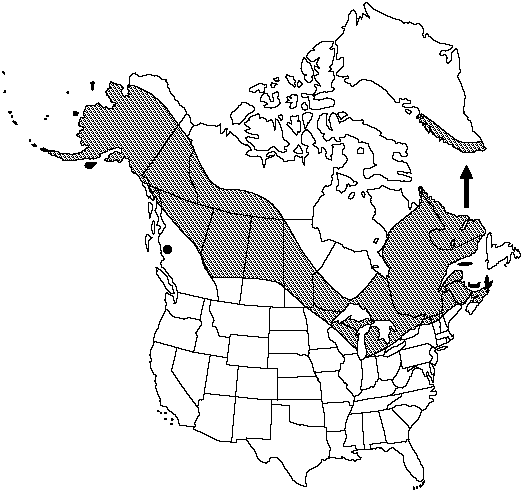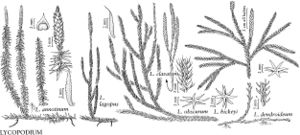Lycopodium lagopus
Fl. Murmansk. Obl. 1: 80. 1953.
Horizontal stems on substrate surface. Upright shoots clustered, shoots 0.5–0.8 cm diam., dominant main shoot branches 2–3 (–4), mostly in lower 1/2. Lateral branchlets few and like upright shoots; annual bud constrictions abrupt and conspicuous, shoots 0.5–0.8 cm wide, branches mostly erect. Leaves ascending to appressed, medium green, 3–5 × 0.4–0.7 mm; margins entire; apex with narrow hair tip 1–3 mm. Peduncles 3.5–12.5 cm, with remote pseudowhorls of appressed leaves, unbranched. Strobili solitary (if double, usually nearly sessile), 20–55 × 3–5 mm. Sporophylls 1.5–2.5 mm, apex rather gradually reduced to hair tip. 2n = 68.
Habitat: More or less exposed, grassy fields and openings in second-growth woods
Elevation: 50–1500 m
Distribution

Greenland, Alta., B.C., Man., N.B., Nfld. and Labr. (Nfld.), N.W.T., N.S., Ont., P.E.I., Que., Sask., Yukon, Alaska, Maine, Mich., Minn., N.H., N.Y., Vt., Wis., Eurasia
Discussion
Lycopodium lagopus is generally more northern than its sister species, L. clavatum (W. J. Cody and D. M. Britton 1989). Where they come together, however, they can grow side by side (even in southern Michigan) and maintain their distinctions.
Selected References
None.
